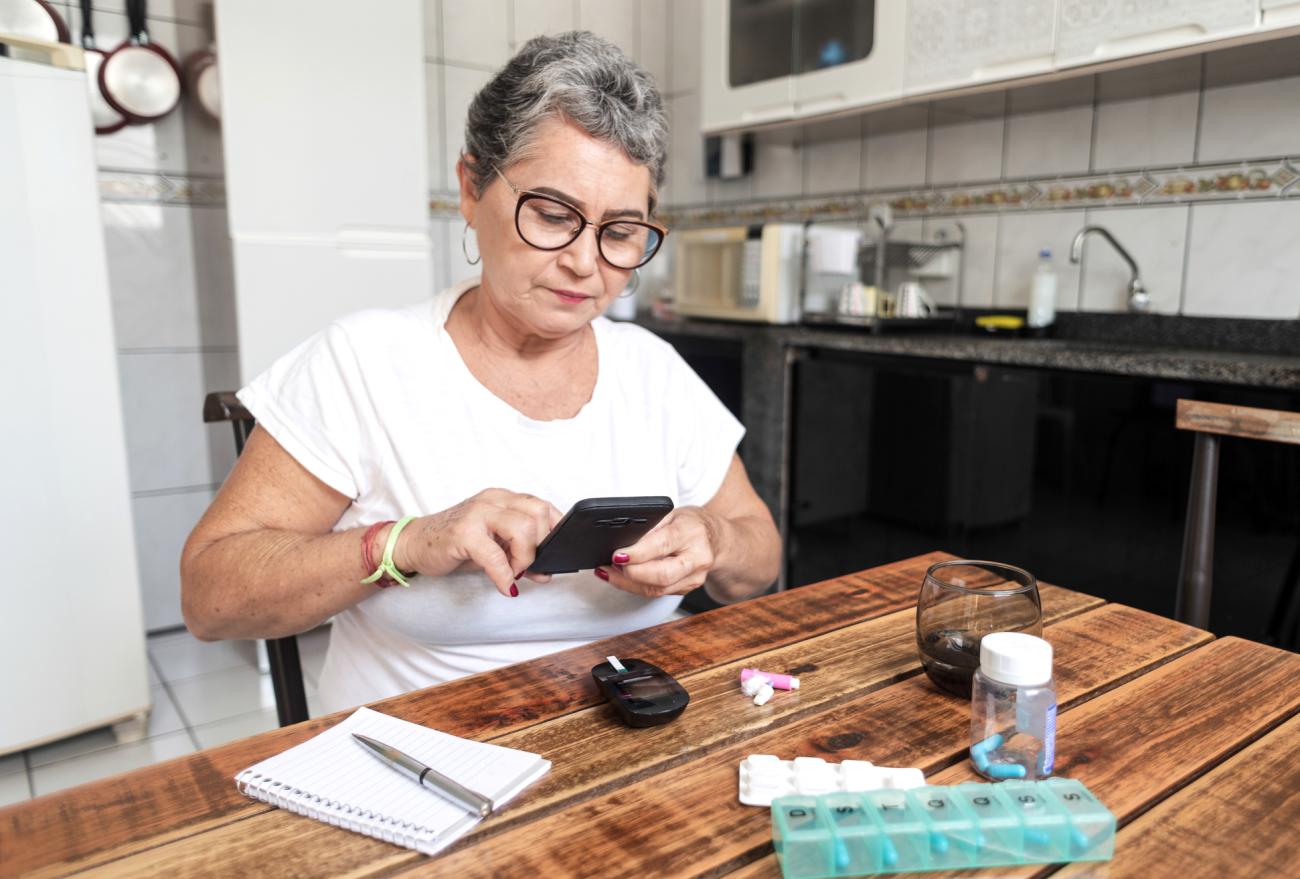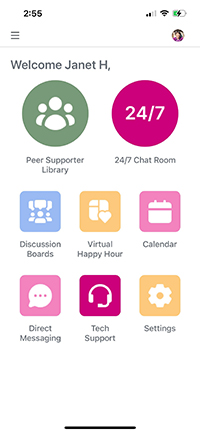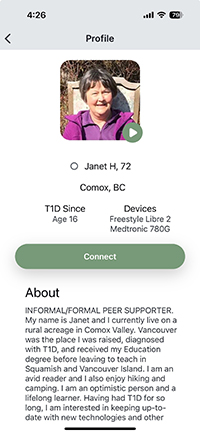
A pilot project of the new REACHOUT app offered accessible and flexible support for people with type 1 diabetes.
Around 30 to 50 per cent of Canadians living with type 1 diabetes (T1D) experience diabetes distress, a psychological state characterized by ongoing frustrations, worries and fears related to managing this complex condition. A pilot study headed by Vancouver Coastal Health Research Institute researcher Dr. Tricia Tang tested Tang’s novel REACHOUT peer-driven mobile application, which shows promise as a just-in-time, wrap-around and customizable mental health care support system for individuals with T1D.
"The REACHOUT app gave participants the support they needed in the moment it mattered most. They decided the frequency and intensity of support.”
T1D affects approximately five to 10 per cent of the over 560,000 British Columbians diagnosed with diabetes. More than half of new T1D cases are diagnosed in adulthood.
T1D is caused by the pancreas not producing insulin — an essential hormone for the control of blood sugar levels. People with the condition must take insulin and follow nutritional and lifestyle habits to protect against harmful or life-threatening complications, such as mental health issues, nerve damage, high blood pressure, eye damage, kidney disease, heart disease and stroke.
An accessible mental health support intervention
Tang’s study included 38 adult participants living with T1D in rural and remote communities in the B.C. Interior, 76 per cent of whom were female. The study also included 36 peer supporters from the B.C. Interior and other parts of the province — all of whom received six hours of training after recruitment. Study participants filled out questionnaires surrounding their diabetes distress before and six months after using the REACHOUT app.

The one-of-a-kind REACHOUT mobile app offered participants flexible approaches to connect with peer supporters as well as other participants with T1D. The three REACHOUT delivery modalities offered to participants were: 1) one-on-one support with a peer supporter of their own choosing; (2) access to group-based support from other participants and peer supporters through a 24/7 online chat room; and (3) community support through monthly virtual huddles.
Virtual huddles were pre-scheduled, 60-minute interactive seminars delivered by one or more peer supporters who were accompanied or monitored by a health care professional. Seminars touched on diabetes-related tips and topics such as managing T1D while downhill skiing, travelling with T1D, addressing burnout and working towards greater resilience. Peer supporter facilitators presented in the first 10 to 15 minutes followed by a question-and-answer period. Attendees were invited to submit questions one to two weeks prior as well as during the session itself.
Participants reported feeling more supported after using REACHOUT
Similar to dating apps, the REACHOUT platform invites participants to browse peer supporter profiles housed in the app’s peer supporter e-Library. Profiles included sociodemographic characteristics such as age, sex and city of residence, along with an overview of peer supporters’ diabetes history, hobbies, professional life, whether they had children and more.

Each participant was encouraged to review profiles and select a peer supporter to connect with based on their personal preferences.
“Participants had the option to switch to a different peer supporter mid-way through the study,” Tang notes. “This flexibility was designed to offer participants the freedom to connect with peers with whom they could best relate.”

“We often seek out people who share similar interests, are at a similar stage of life or have a related professional or family background,” adds Tang. “In the study, a young man in his 20s matched with a man in his 50s because both had a background in information technology. This pairing was intuitive from the standpoint of the participant but would have been difficult for us to make for him.”
Results from the study showed that participants experienced higher levels of support from friends, family and peers following the REACHOUT intervention. For women, the survey results showed significant reductions in their depressive symptoms and overall distress, including in three of the distress subscales of powerlessness, management distress and eating distress.
“Encouragingly, 20 of the 36 peer supporters involved in the pilot study are continuing on as peer supporters in our subsequent, large-scale REACHOUT randomized controlled trial (RTC),” Tang relays. “Likewise, of the 38 participants in our pilot study, nine completed training to become peer supporters for the REACHOUT RCT.”
“This development shows us that the low-barrier REACHOUT program could well have longevity should it be rolled out across the province, with a continuous influx of participants paying it forward by becoming peer supporters, along with volunteers from the broader community of people living with T1D.”


